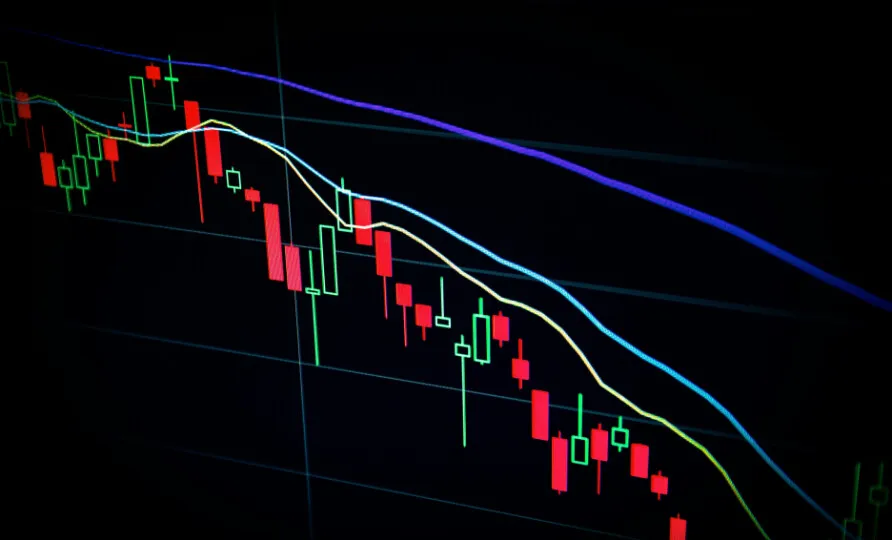Macro conditions in the global economy are showing a slowdown of available liquidity. While not in a crunch yet, the slower liquidity turnover may start to affect crypto markets.
Global liquidity is not in a crunch, but is slowing down. Yet signs of reversal are in the works, leading up to a slight quantitative easing from the US Federal Reserve. The next Federal Open Market Committee meeting this Wednesday will probably retain the same interest rate level of 5.5%.
Others see a slim chance of a 0.25% rate cut, which would be seen as a move to free up liquidity faster.
The market may be preparing for the next stage, after liquidity consolidates and is deployed again. From a cyclical point of view, the next months may switch from liquidity stagnation into a new surge.
The reversal of the liquidity trend may take months to be realized, especially on the global scale. When it comes to the crypto world, liquidity in the form of stablecoins is already at peak levels, both for centralized and decentralized trading. The available funds are nevertheless deployed more carefully, picking the right projects instead of flowing into any token.
⏸️ Global liquidity on pause but generally heading in the right direction
Over the past seven days, Global Monetary Liquidity has essentially remained roughly flat – up 0.01%.
I think there's a good chance it will increase notably over the coming weeks.
The YoY percentage… pic.twitter.com/G9ouMzgK3r
— Tomas (@TomasOnMarkets) July 29, 2024
Crypto is liquidity-driven, but has risen during a rate crunch
The first crypto bull market followed a decade of unprecedented quantitative easing by most leading central banks. The extra liquidity also funded the VC inflows over the years, as well as general demand for risky assets.
In 2024, there are still mainstream finance analysts that consider Bitcoin (BTC) to be a bubble that is liquidity-driven.
However, in the past few years, BTC has shown it can also grow during periods of peak interest rates. During that time, BTC was seen as a safe haven, driving additional spot buying from whales.
Crypto markets have also matured and evolved, with hot spots of economic activity, fee generation and concentrated liquidity. Whales and known ‘smart money’ are also tracked for a detailed view of liquidity, with constantly changing conditions. At the same time, the markets are also facing outflows, as the boom of VC investments are still trying to recoup their liquidity from locked tokens.
The potential for liquidity growth over time may add to the long-term holding strategy, especially for Bitcoin (BTC). In the summer of 2024, BTC dominance increased, as stablecoin investments flowed back into BTC. One of the reasons is that BTC is more censorship-resistant, unlike stablecoins where some of the assets can be frozen. BTC, on the other hand, can benefit from a shift to liquidity expansion in the coming months, even without the short-term effect of USDT injections or stablecoin-based trading.
Bubbles pervade society and the #Crypto Bubble has now even invaded #politics. There may be something to the technology but the price of #Bitcoin is purely…purely…liquidity driven!! pic.twitter.com/PZoUWQsJ1y
— Richard Bernstein Advisors (@RBAdvisors) July 29, 2024
BTC tracks M2 liquidity growth
In the short term, BTC and crypto markets can go against other macro trends. But over the past years, BTC growth has mostly tracked the expansion of global M2 money supply. One of the big questions on the effect of liquidity is the potential cycle peak. BTC has not reached the target price levels during its 2024 expansion, and there are still hopes for a higher valuation with a continued bull market.
Based on the current cycle of liquidity, BTC may expect to rally as late as the end of 2025. The liquidity cycle narrative also coincides with the BTC halving cycle. There are still hopes of BTC expanding to $100K by the end of the year. At this point, though, there is no way to predict how much of the available liquidity will flow into BTC and crypto markets.
As of 2024, the fiat money supply gradually increased to $92T. The crypto market lows of 2022 coincided with a liquidity crunch down to $85T. The latest BTC rallies happen over a relatively stagnant M2 supply.
The first half of 2024 already held two BTC rallies, while the M2 supply of the four leading central banks remained relatively flat around $87T, based on the liquidity policy of the Fed, the European Central bank, Bank of Japan, and the People’s Bank of China.
But that liquidity comes at a price, as global debt has grown to $315T as of 2024. The presence of inflation, though at a lower rate, is still driving crypto usage as a potential offset.
Cryptopolitan reporting by Hristina Vasileva





